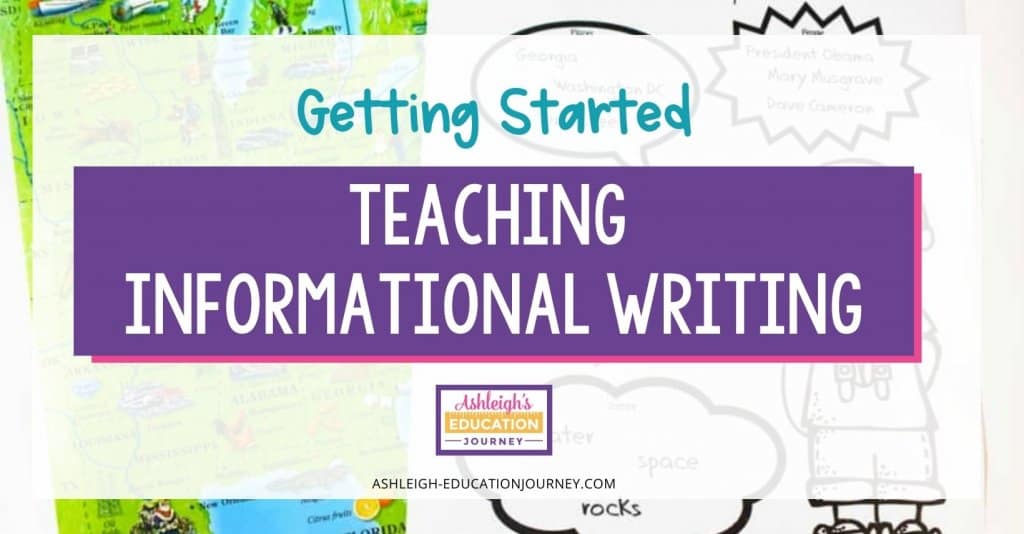
When I first started teaching, informational writing was one of my least favorite units to teach. I could spend months on narratives but would have been happy to skip informational writing altogether. Part of my problem was that I misinterpreted writing workshop training and was under the impression that students should just start writing. I’d teach a lesson or two on the difference between informational writing and narrative writing and then had students start writing. My students were confused; I was frustrated, and instinct told me that there had to be a better way. I eventually began to apply my philosophy of teaching other subject areas toward writing, and it has made for a much smoother process.
I now begin my writing unit at a snail’s pace. It takes me at least two weeks to get my students to the point of actually writing. It’s best start an informational writing unit with an emphasis on planning and organization. Don’t allow myself to hurry through (or skip) those lessons.
Introduce Informational Writing
Introduce the informational writing unit by teaching about the difference narrative writing and informational writing. This may seem obvious to us as adults, but many students need this explicit instruction.
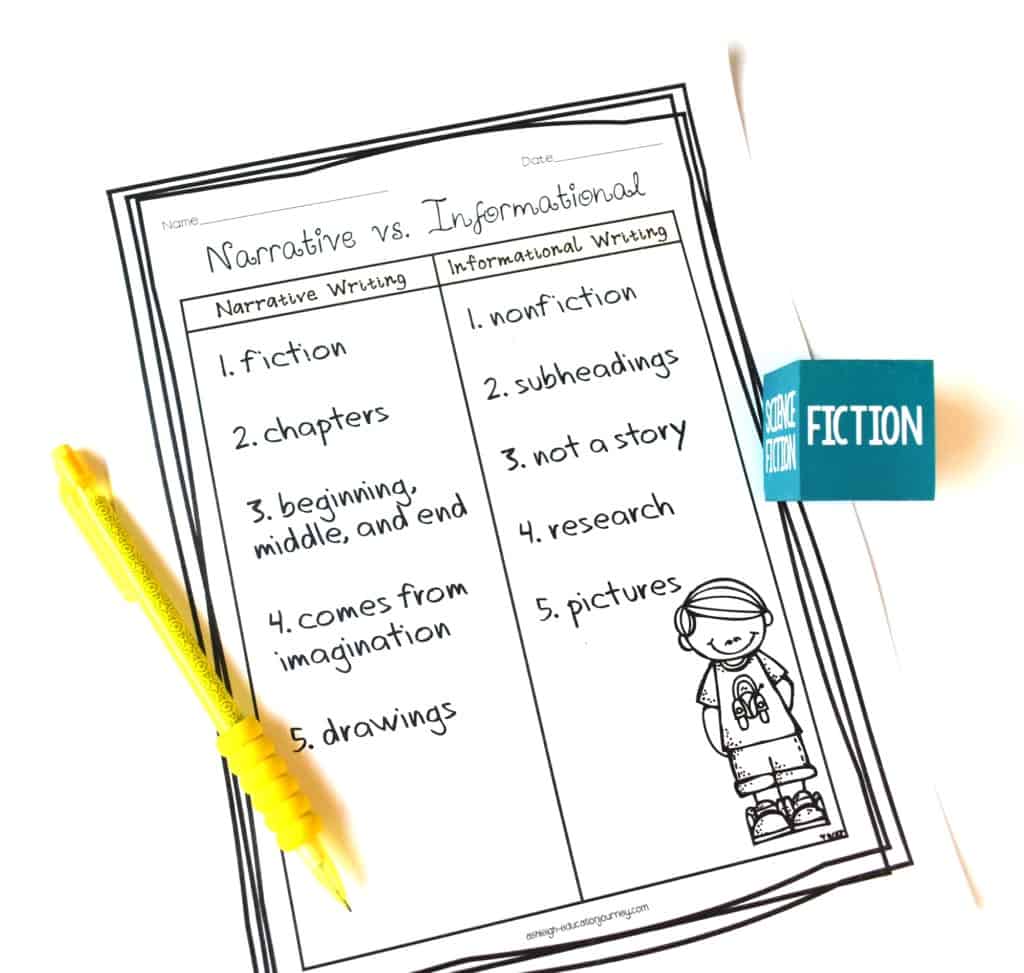
Have students create expert lists, where they brainstorm topics they know a lot about. During the first stages of this informational writing unit, have students write about topics in which they have a considerable amount of background knowledge. It’s a little early in the informational writing unit for students to research topics students don’t know much about. For now, the emphasis is on organization and planning. You can teach how to research later in the unit.
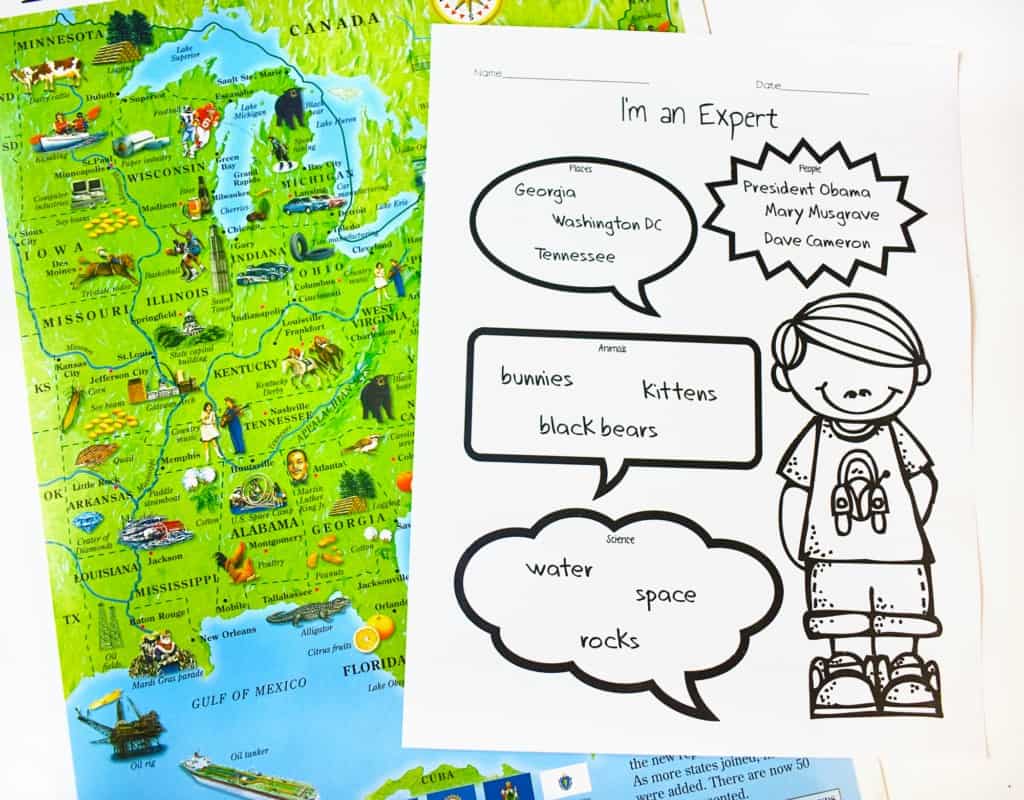
Then, allow students to choose an informational writing topic from their expert list. I’ve found that choosing a good topic for informational writing is VERY difficult for students. They have a tendency to select informative writing topics that are much too broad or much too narrow. We spend an entire lesson working on choosing topics that are manageable to write about. You can use the page below to give students extra practice narrowing or broadening their informational writing topics.
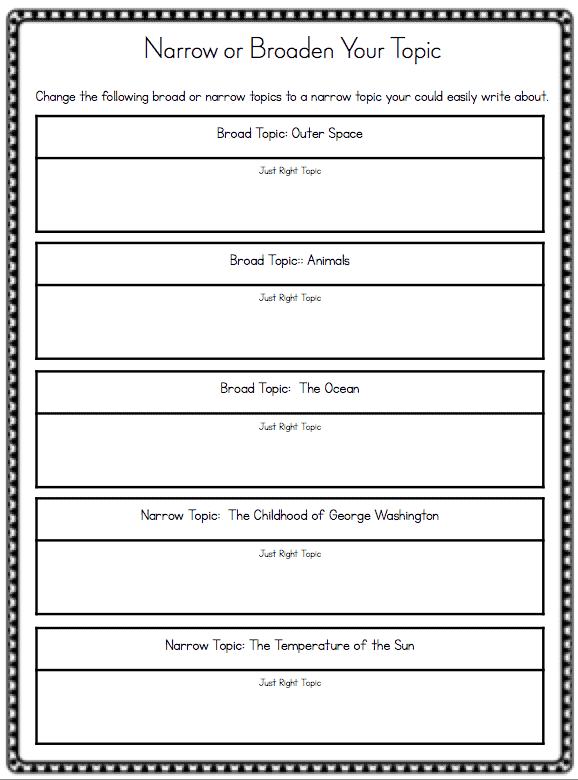
Informational Writing-Subtopics
Once students have selected a topic for informational writing, that you have approved, teach students how to break their topic into three subtopics. We talk about what a subtopic is and how to select appropriate subtopics. Be sure students choose subtopics they’ll actually be able to write about. Selecting a subtopic early in the process allows students to see whether or not they’ve chosen a good topic to write about, BEFORE they’ve spent weeks on a topic that is extremely difficult to write about. I want my students to be able to write three details/facts/examples underneath each subtopic before moving on in the writing process.
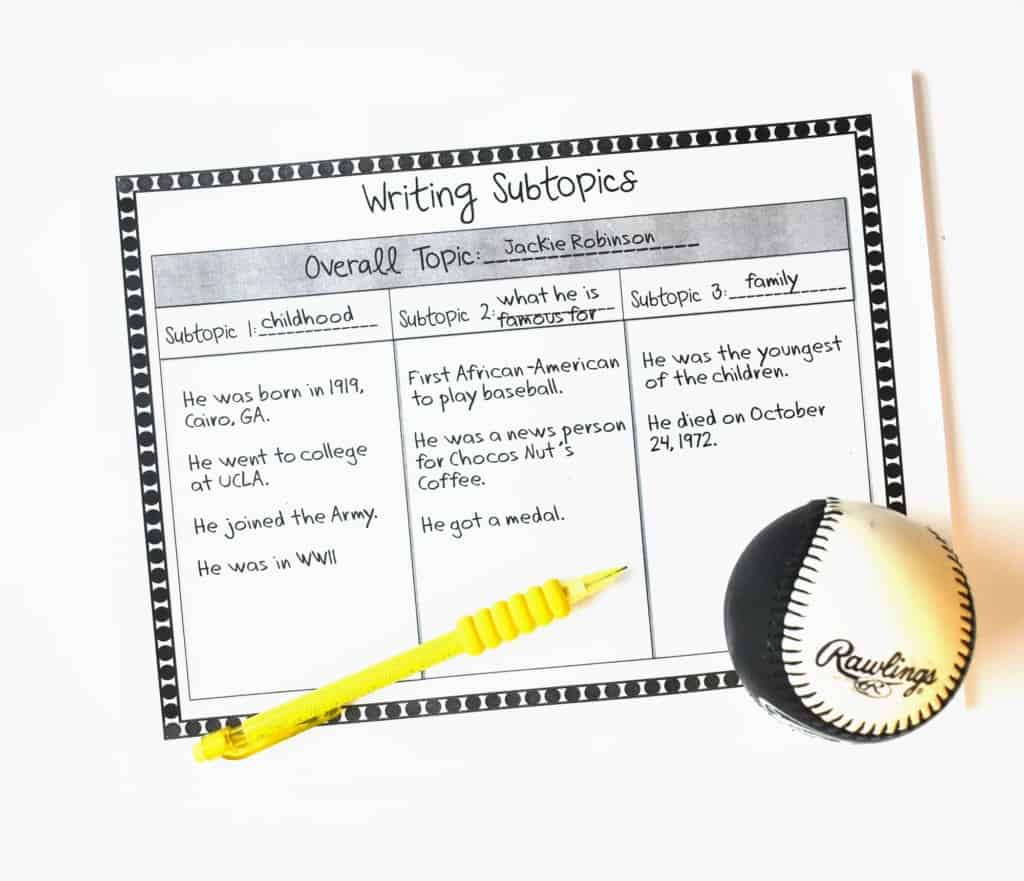
If I see the need, I give my students a little extra practice creating subtopics when planning informational writing. I think this step is especially important, because my students will have to respond to a writing prompt on their state test. I want this step of informational writing to feel like a natural process of writing to my students.
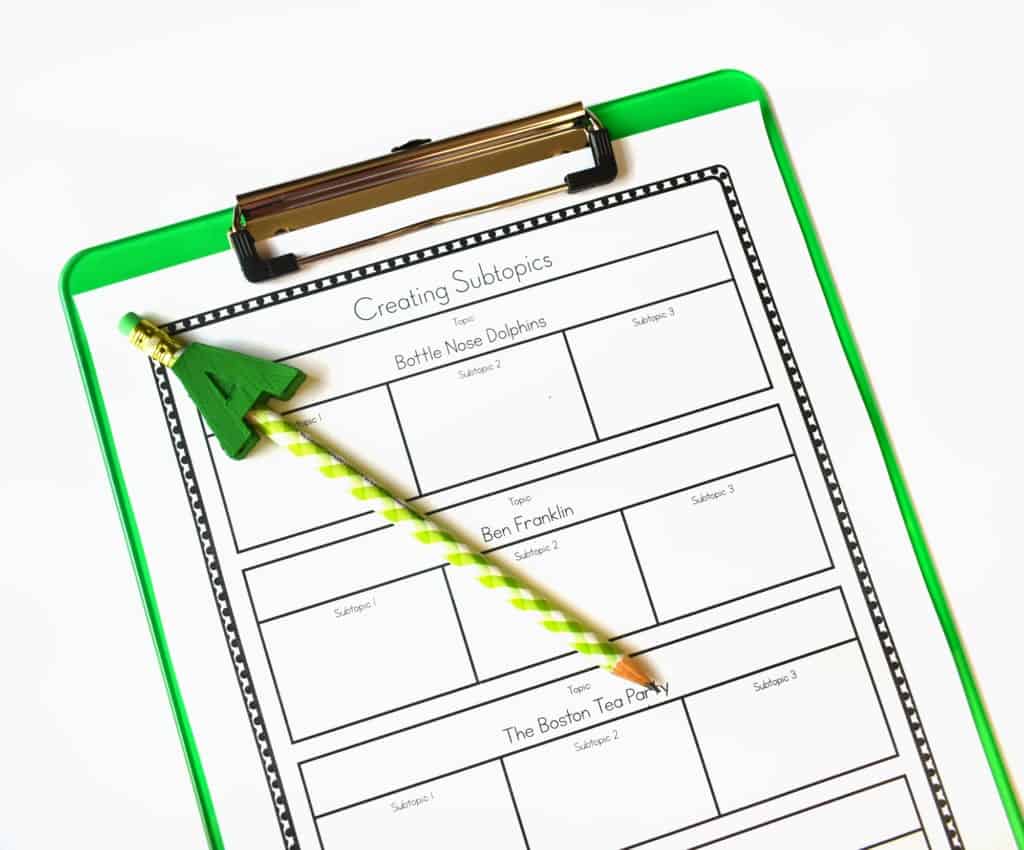
After students have identified their three subtopics, begin teaching students how to use our informational writing graphic organizer. Spend a couple days working backwards where students read an informational essay and place the information from the essay to the graphic organizer. We typically do this together one day, and then I let students work in groups or with partners to repeat the process with a new paper on the following day.
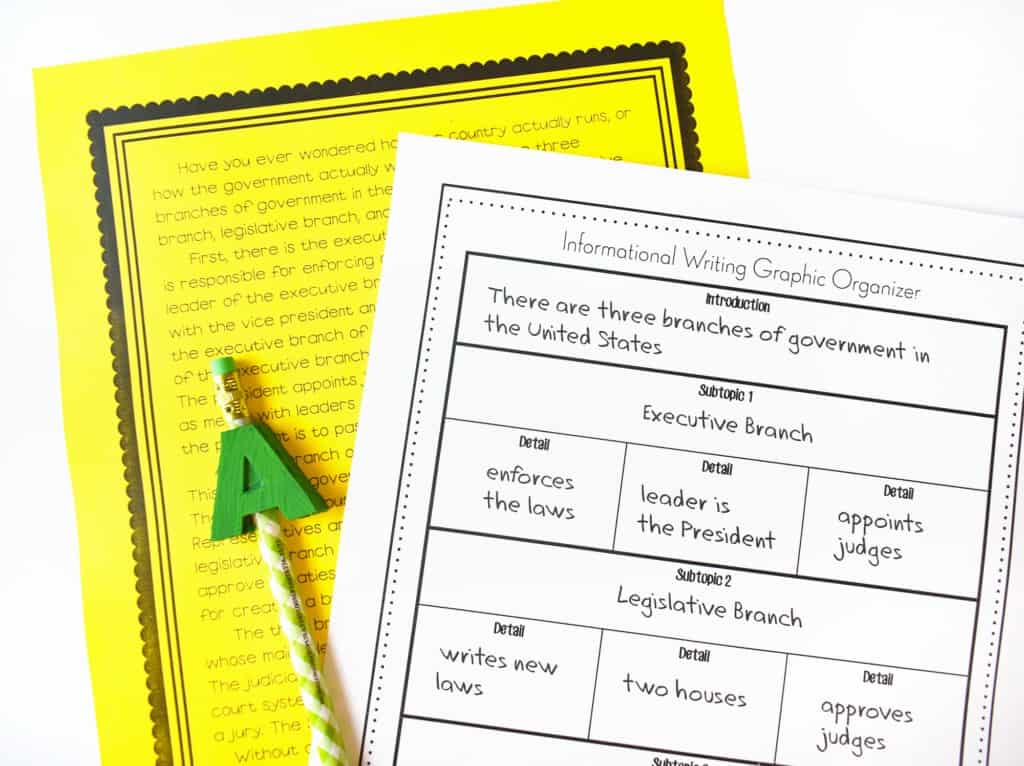
Paragraphs
Informational writing paragraphs are much more structured than narrative paragraphs. If students need instruction in writing paragraphs, I teach this step-by-step guide for writing a complete paragraph. Fortunately, most of my students are already able to write good paragraphs.
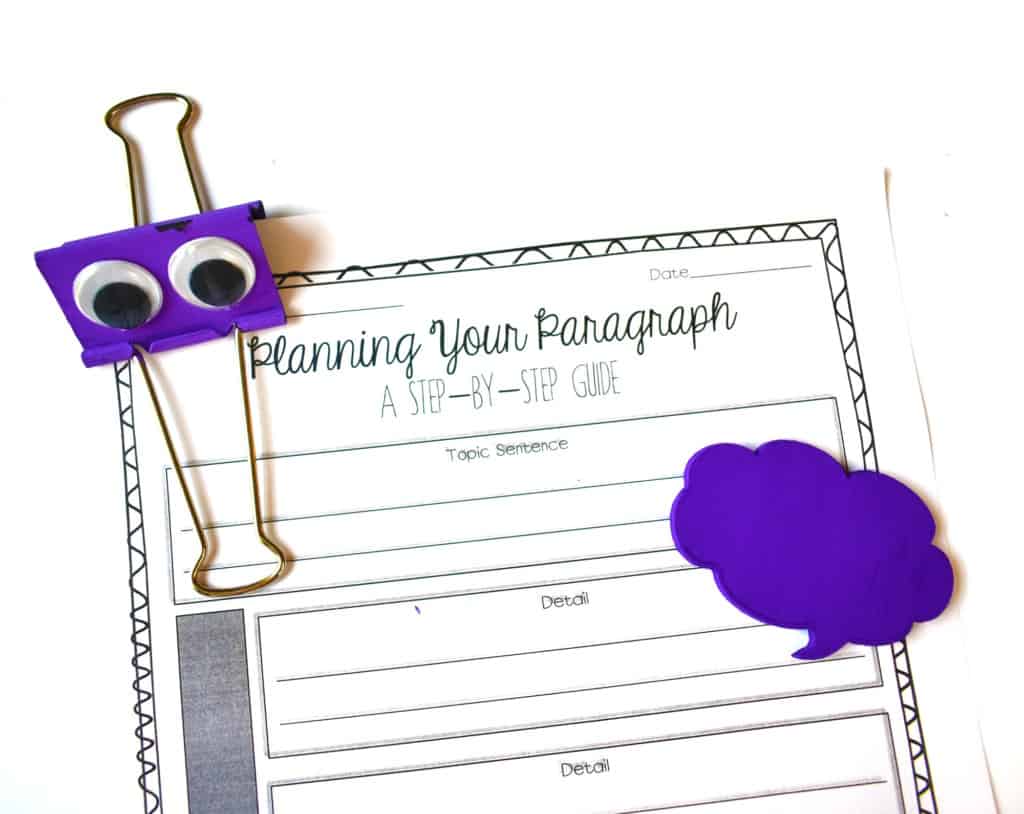
At this point, I let students to complete a graphic organizer for their own informational writing topic. I also create an informational writing anchor chart with students, so they can refer to the anchor chart throughout the year.
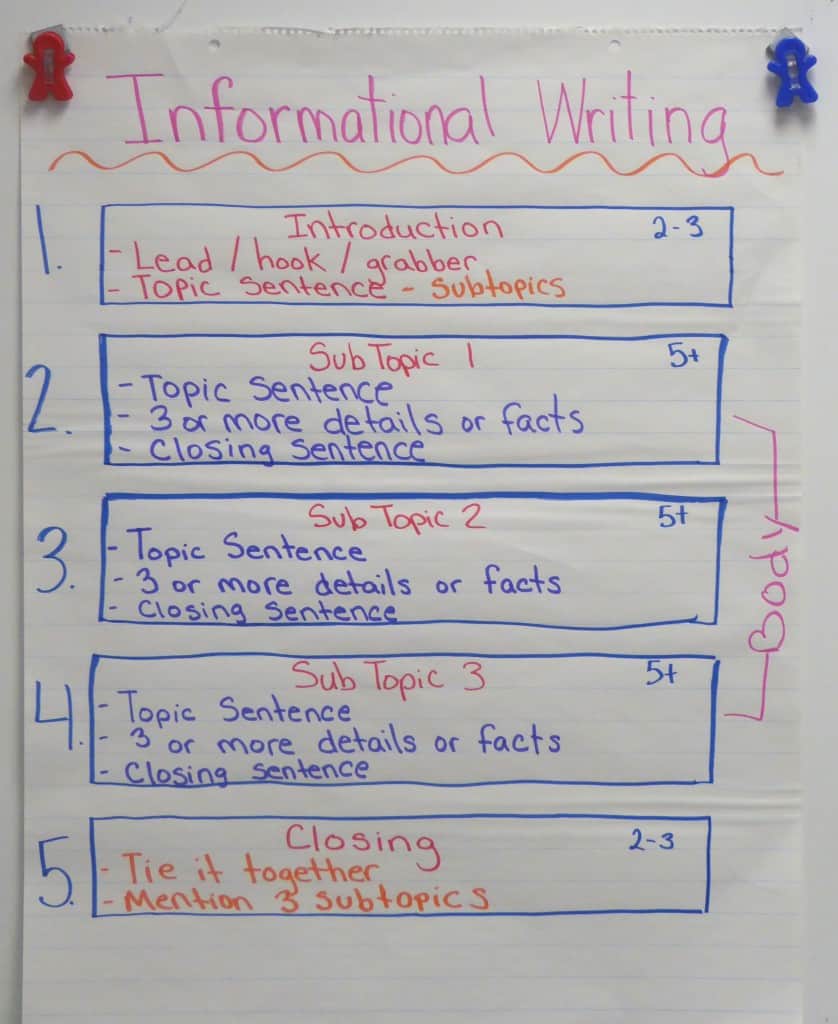
Craft Lessons
We eventually begin working on writing craft lessons, such as how to begin an information piece of writing. I typically teach students to begin their writing with a question, fact, or description. I’ve tried beginning with a anecdote, but that was a bit challenging for some students. I like to provide mentor texts to use as examples and to have students attempt each type of lead.
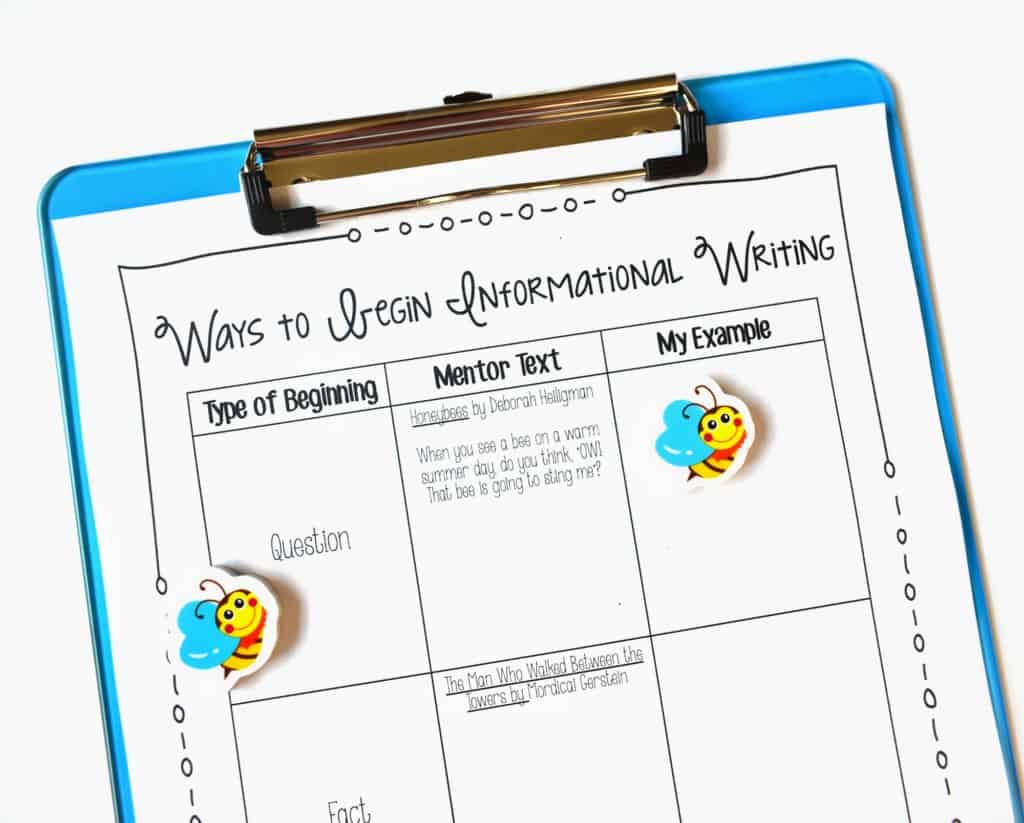
We focus on other things like strong introduction paragraphs, good informational writing conclusions, transition words, and strong verbs.
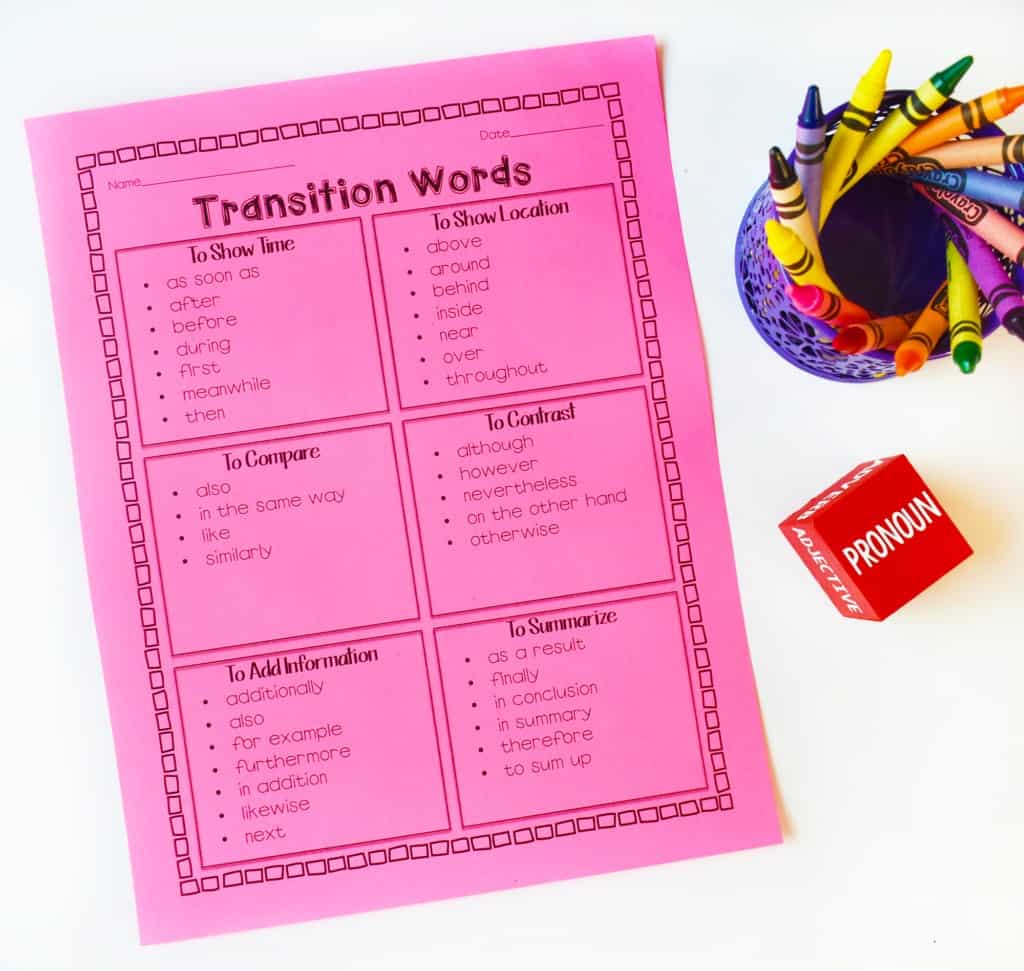
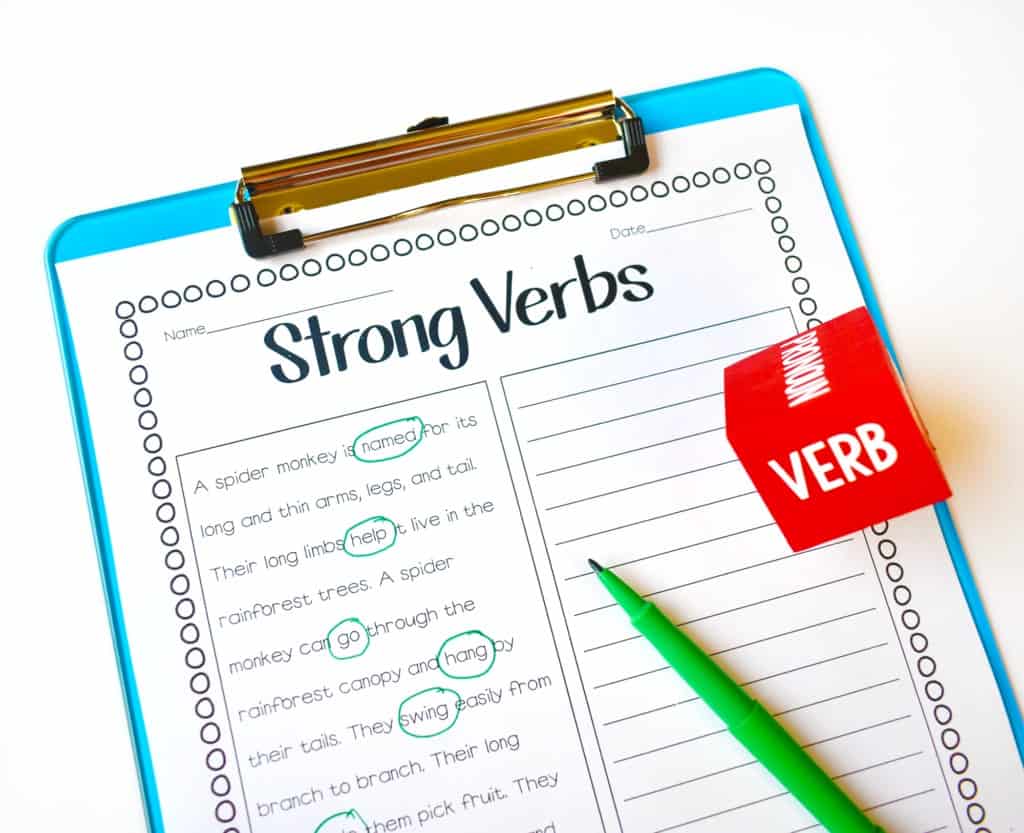
Assessments
Before assessing students, I always spend a lesson or two working with an informational writing checklist for revising and editing. The checklists include all of the skills and strategies students have learned within the writing unit. I love having students revise and edit their writing with access to the rubric I’ll use to asses their writing. The rubric below is very student AND teacher friendly. Grading writing is never quick and easy, but a clear rubric certainly helps.
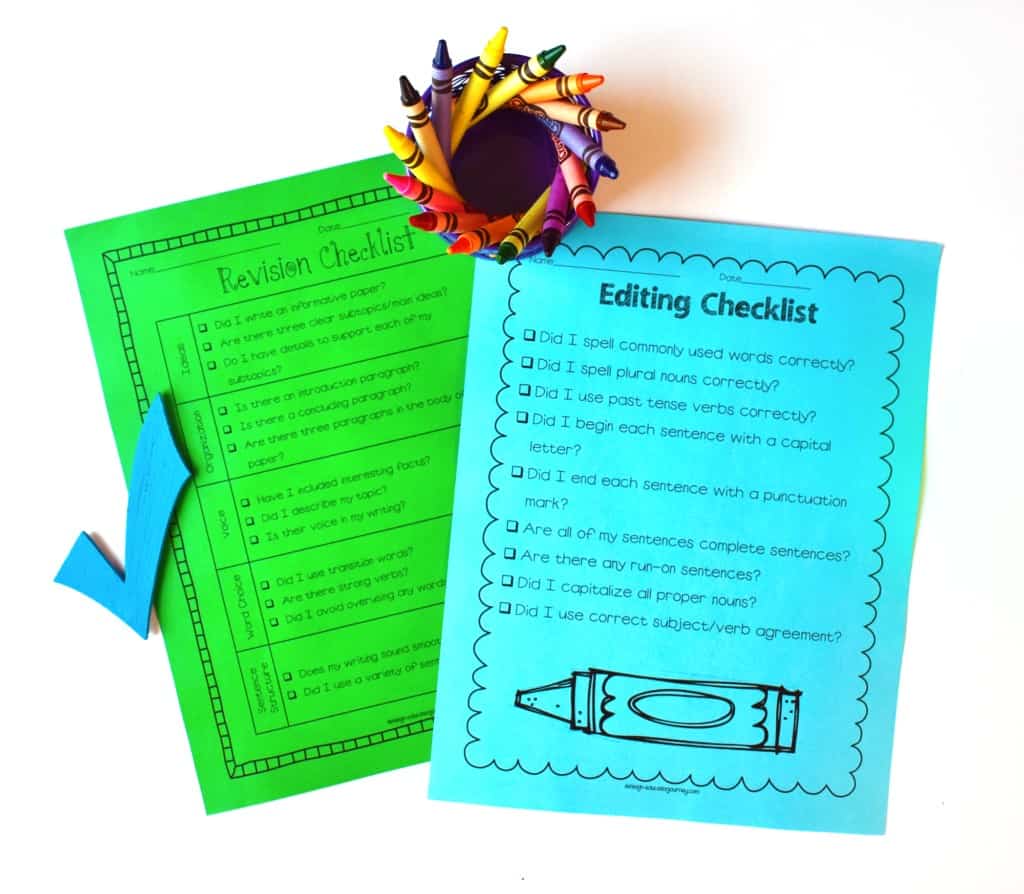
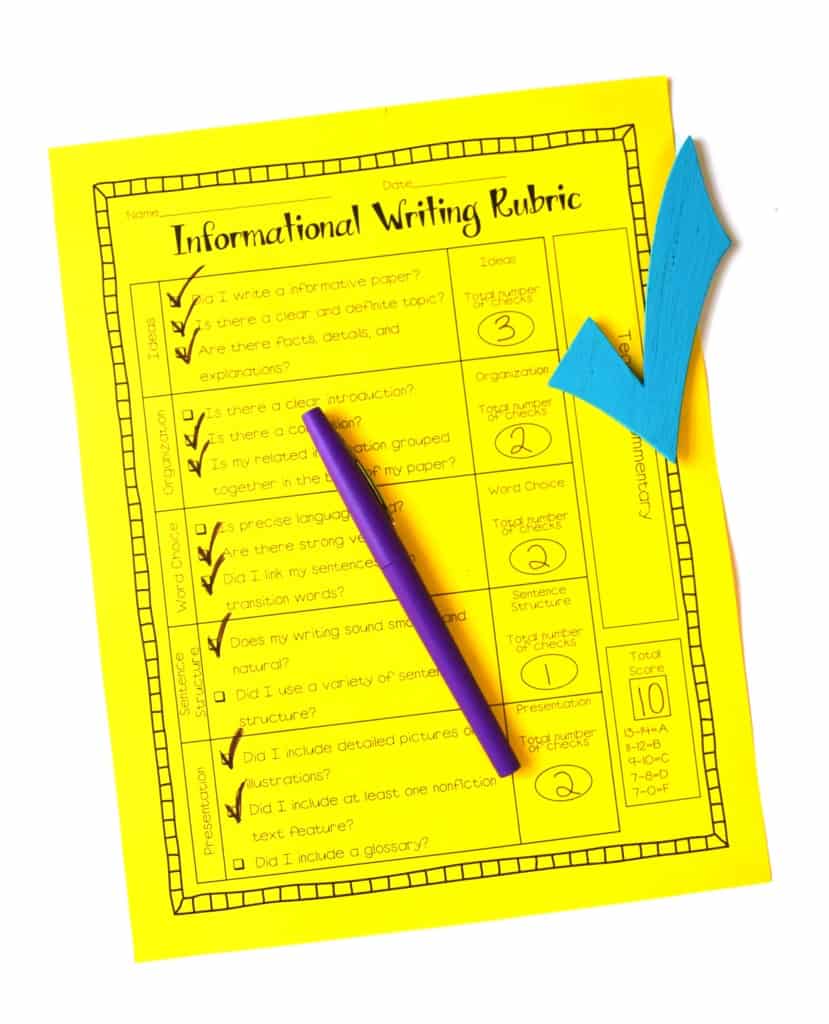
All of these informational writing lessons are in my Informational Writing Unit. Some of the forms are new, so if you already own the file, be sure to download the unit again for the newest version. I also wanted to add a couple notes about the writing unit. The mentor texts are all just suggestions. You are more than welcome to substitute the books for a text of your choice. I just added the book suggestions to save you time looking up ideas of what to read. Also, the Unit at a Glance is also just a suggestion. If you feel like your students need more time on a particular skills, that’s perfectly fine! I like to schedule in an extra week to give myself some wiggle room.
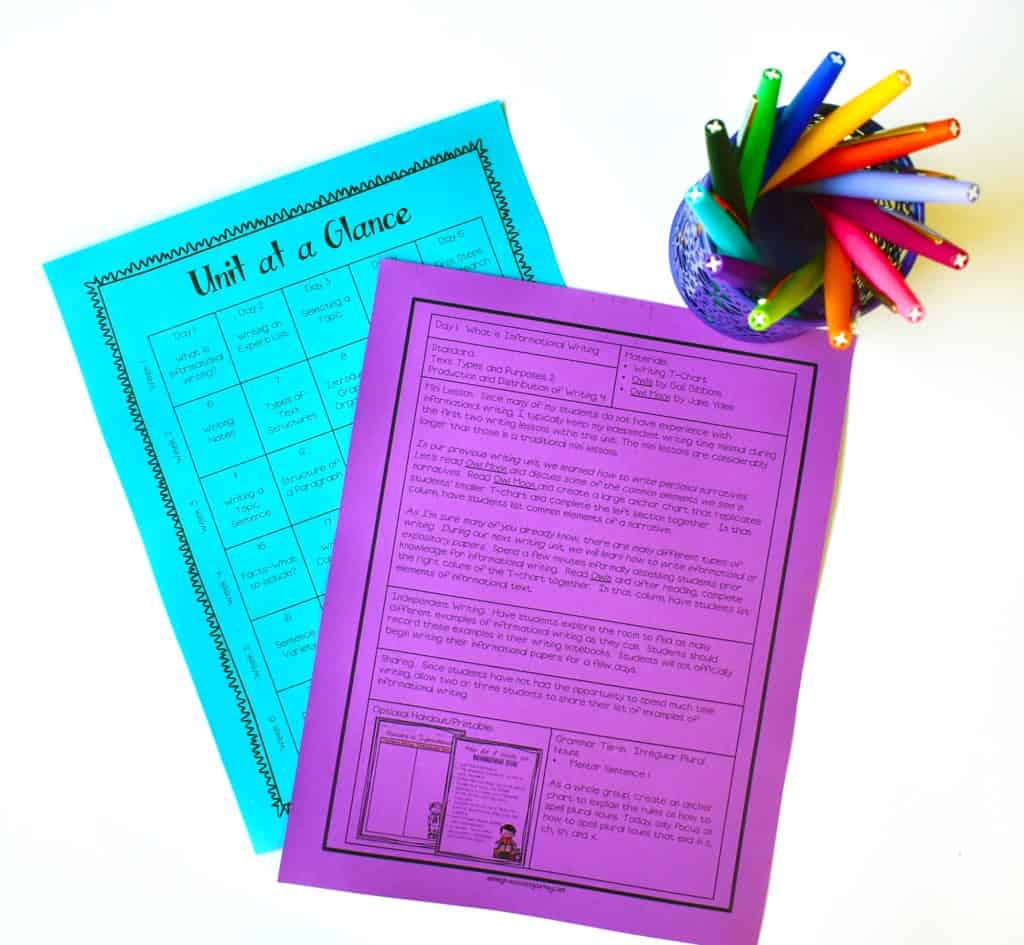
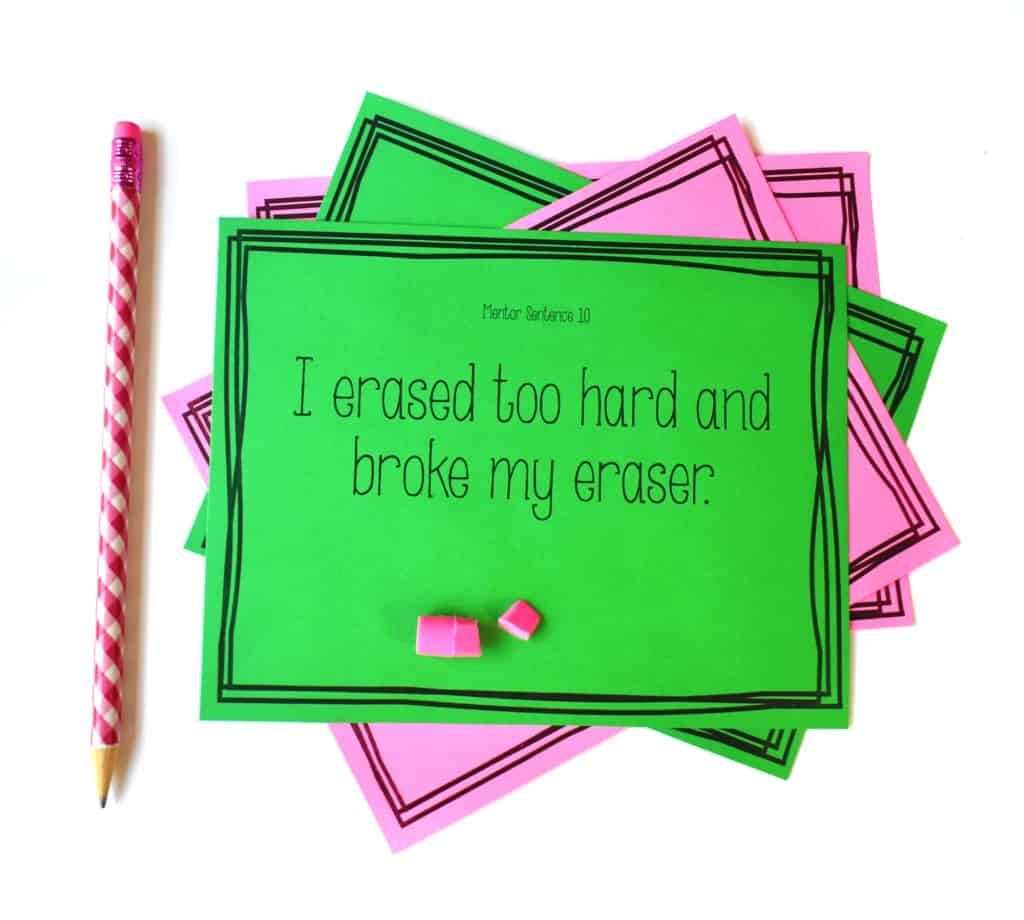
If you’d like to read more about teaching informational writing to upper elementary students, be sure to check out this Writing Workshop Guide!
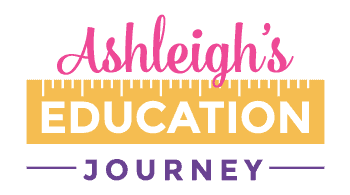

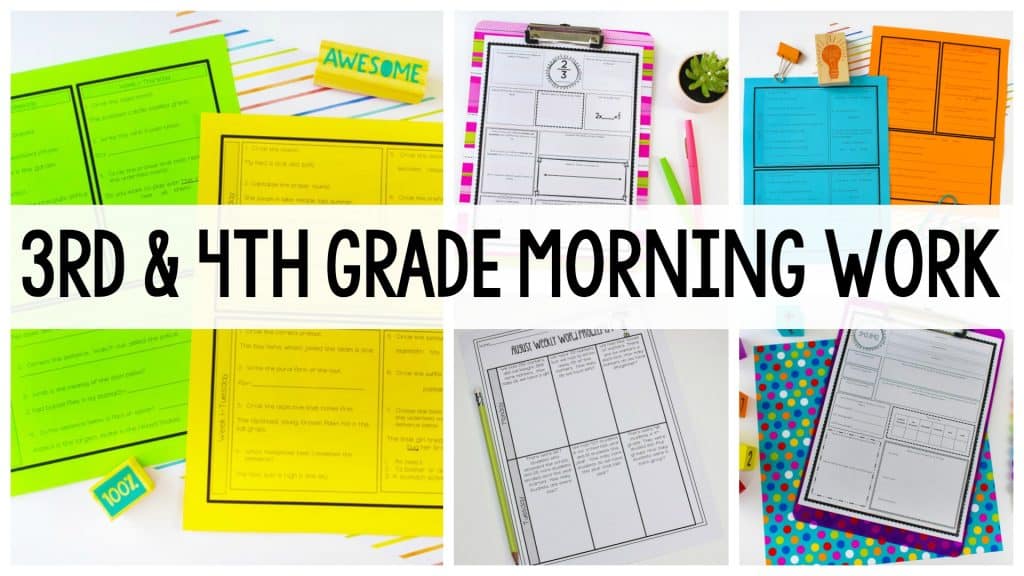
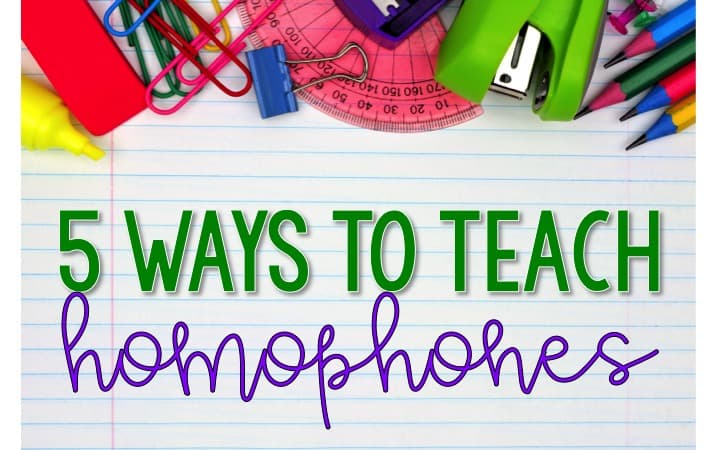
Your informational Writing Unit is terrific! As a retired Reading/Language Arts Coordinator, I was looking for some ideas to use in my son’s current third grade classroom. I particularly like your guidance to take the time initially to develop the basics and plan before simply assigning students to write. We all feel rushed to cover the curriculum/Common Core etc. and often don’t realize that some development time in the beginning will pay off. We also assume children should know intuitively how to write without systematic instruction. Thanks so much for activating and organizing my thoughts and prior knowledge.
Is your informational writing unit included in your writing bundle?
Yes, it is!
I wanted to know if 3rd graders write in different paragraphs yet or just one big paragrah
what month should you begin informational writing?
There really is no set month. I like to incorporate it into when I’m teaching ecosystems in science, so I plan around that. It makes the research so much easier.